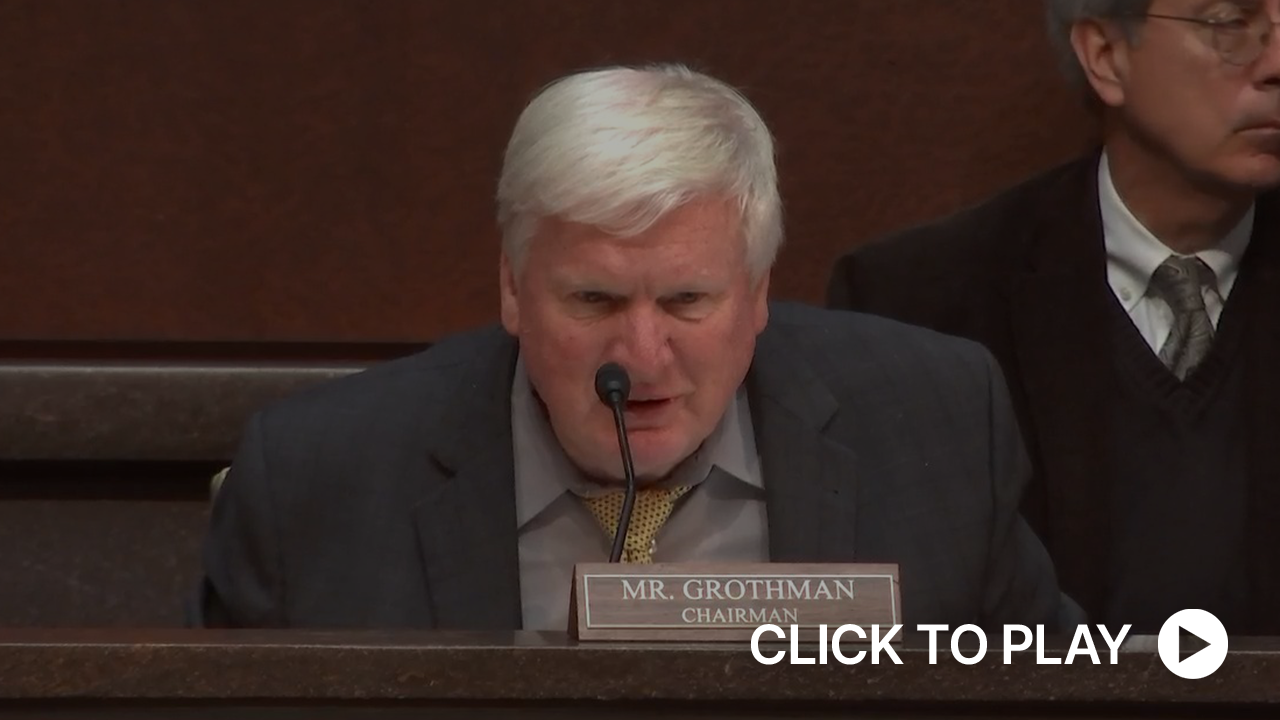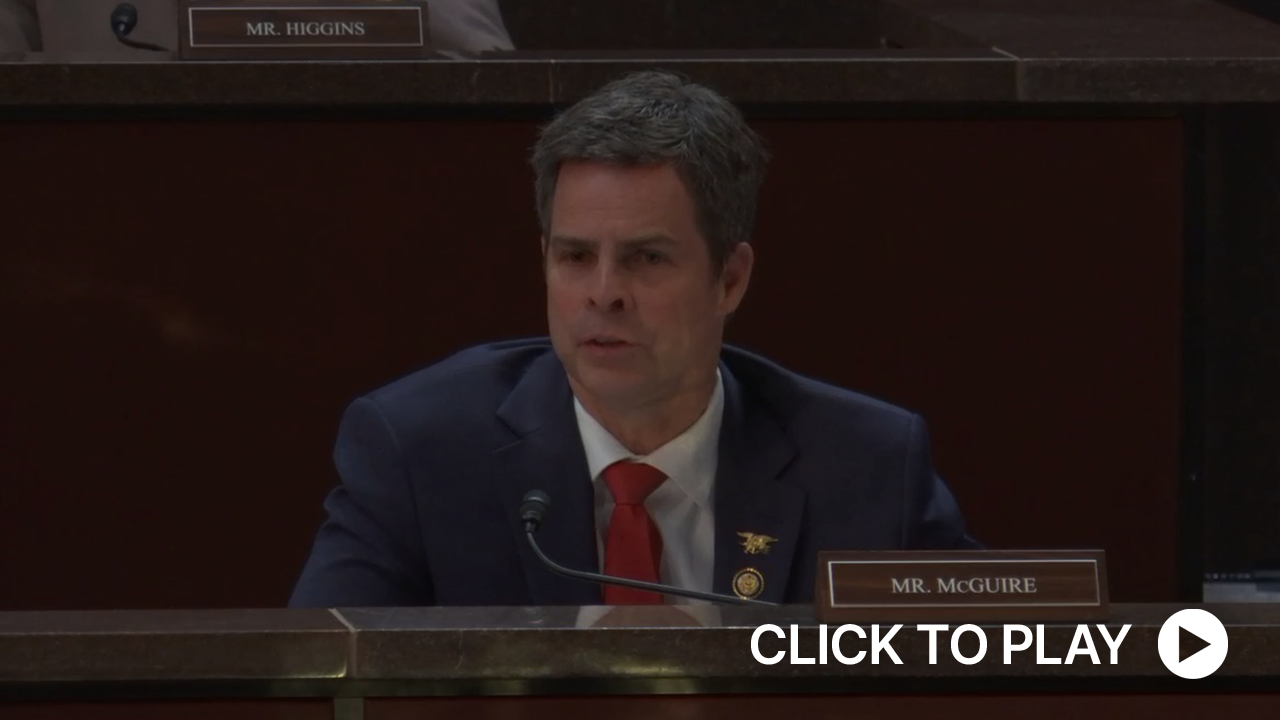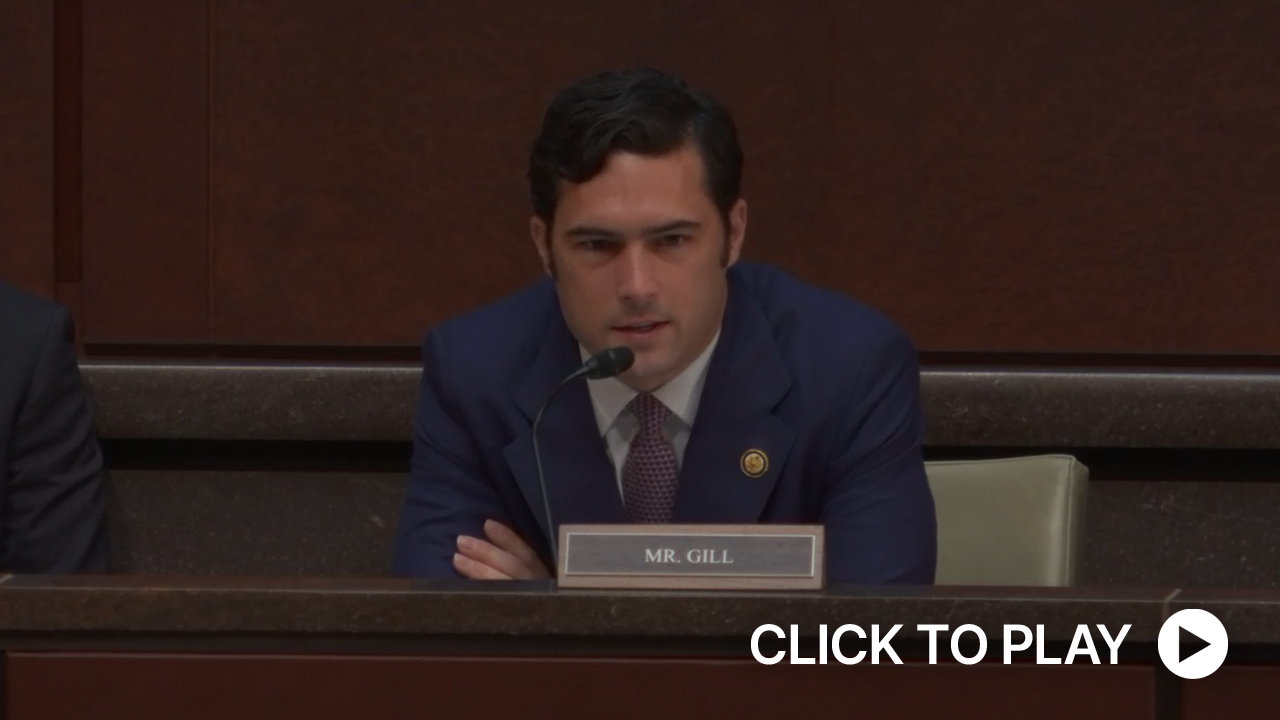
Hearing Wrap Up: IRA Threatens American Energy and Medicine
WASHINGTON—The Subcommittee on Economic Growth, Energy Policy, and Regulatory Affairs and the Subcommittee on Health Care and Financial Services today held a joint hearing on “Mandates, Meddling, and Mismanagement: The IRA’s Threat to Energy and Medicine.” At the hearing, members examined how the Biden Administration used the Inflation Reduction Act (IRA) to raise taxes on Americans, increase radical Green New Deal spending, and hike Medicare premiums for seniors. The Biden Administration wasted billions in taxpayer dollars and harmed Americans to fund the Democrats’ radical climate agenda and restrict Medicare plan choices, all while overlooking the waste, fraud, and abuse in funding streams to left-wing beneficiaries.
Key Takeaways:
The IRA is disastrous for American health care, especially Medicare.
- Economic Growth, Energy Policy, and Regulatory Affairs Subcommittee Chairman Eric Burlison (R-Mo.) remarked in his opening statement that, “There are also implications for the future of our tax code and prescription drug costs. The IRA has already led to a more convoluted web of tax subsidies creating additional burdens for compliance for healthcare under the IRA. The Biden Administration’s pill penalty will ultimately increase drug costs and federal expenditures on Medicare.”
- Dr. Erin Trish—the Co-Director of the USC Schaeffer Center—testified in her opening statement that, “Another key provision in the IRA was a significant redesign of the Medicare Part D benefit. Medicare Part D provides drug coverage to 53 million Americans…but the abruptness of the change and its implementation [have] created market instability and considerably increased federal spending. First, Part D plans are exiting the market. There is a 35% reduction in the number of plans offered this year. Today, beneficiaries have the fewest options ever in the program’s 20-year history. Second, taxpayers are paying more. Historically, taxpayers have subsidized about 75% of premiums in this market, but thanks to provisions in the IRA, as market instability grows, so too does the bill.”
IRA subsidies opened the door to potentially trillions more in radical “Green New Deal” spending than was projected at the time of its passage.
- Mr. Ben Lieberman—a Senior Fellow at the Competitive Enterprise Institute—testified in his opening statement, “[The] price tag for the energy provisions in the IRA was estimated at about $370 billion dollars for the ten-year period from 2022 to 2032, and this was the score that informed the debate over the bill. Only two years after passage, [Congressional Budget Office] and [Joint Committee on Taxation] more than doubled this estimate.”
- Dr. William McBride—Chief Economist and Stephen J. Entin Fellow in Economics at the Tax Foundation—testified in his opening statement that, “Soon after the IRA was enacted, several outside groups, including Goldman Sachs and scholars at the Brookings Institution, began providing estimates indicating the cost of the credits would be much more than originally expected. Roughly $1 trillion over a decade. [The Joint Committee on Taxation] provided an updated estimate in May 2023. That’s nine months after enactment, indicating the cost of the credits had roughly doubled over the original estimate for the same years.”
The IRA allowed vast amounts of waste, fraud, and abuse to permeate within funding streams for radical, left-wing environmental groups.
- Health Care and Financial Services Subcommittee Chairman Glenn Grothman (R-Wis.) noted in his opening statement,
“The IRA contains billions of dollars for subsidies of so-called ‘green energy’ projects for elites. It’s corporate welfare for the elite climate radicals. The beneficiaries of [its] tax subsidies are overwhelmingly Democratic donors…The green energy tax credits don’t benefit the average American. They have gone to high income earners who were already planning on and could already afford installing solar panels or buying an electric vehicle.”
Member Highlights:
Subcommittee Chairman Grothman inquired about who is benefiting from IRA subsidies and who is getting hurt.
Subcommittee Chairman Grothman: “Could you describe who’s largely getting the benefits of these tax credits in the so-called ‘Inflation Reduction Act’? Who’s paying the price here? Who’s paying the price and getting their taxes reduced, Dr. McBride?”
Dr. McBride: “…You look around, you know, ‘Who’s buying solar panels?’ Who’s buying electric vehicles?’ Those are high income people, and you can see that with your own eyes. The data and the studies support that. For that matter, a lot of the credits go to businesses.”
…
Subcommittee Chairman Grothman: “These energy subsidies are responsible for enormous costs. Overall, insofar as [they drive] up the cost. Who is going to pay the price for that? Is this another thing that’s kind of regressive tax on the average guy, or how would you describe who’s paying the price for this?”
Mr. Lieberman: “There’s almost nothing in the Inflation Reduction Act that’s geared toward lowering energy prices, so energy prices will go up. One thing I would add, for example, is that there’s a lot of provisions in there geared toward the discouraged use of natural gas and making homes all electric. Well, natural gas is three times cheaper than electricity on a per unit energy basis, so it’s one example where climate policy is very much at odds with pro-consumer policy.”
Rep. John McGuire (R-Va.) asked about reforms to prevent the IRA from causing a decline in medical research and new drug innovation.
Rep. McGuire: “Dr. Trish, you co-authored a white paper which concluded that, without reform, the IRA may result in a decline in new drug innovation as well as a decline in research on new indications and evidence for long term effectiveness and safety outcomes. Very briefly, what reforms are necessary to undo the harmful consequences of the Inflation Reduction Act?”
Dr. Trish: “I mean, essentially, we need reforms that realign the pricing incentives so that we are rewarding manufacturers when they produce drugs that have high value for patients in society. That’s the opposite of the set of reforms that we see in the IRA, and so we need to fundamentally shift the incentives there.”
Rep. McGuire: “Right, because what gets rewarded gets repeated.”
Dr. Trish: “Exactly.”
Rep McGuire: “And picking winners and losers means everyone loses.”
Rep. Brandon Gill (R-Tx.) noted that energy tax credits under the IRA benefitted wealthy Americans at the expense of the working class.
Rep. Gill: “Democrats love to claim that these subsidies benefit working class Americans. We have IRA data that found that $5.5 billion of the approximately $8.4 billion in tax credit claims doled out for residential energy tax credits came from filers earning more than $100,000 a year annually. I’d love to hear your opinion again. Do you believe that these tax credits benefit wealthy Americans at the expense of our working class?”
Mr. Lieberman: “The priorities in the Inflation Reduction Act are simply not the priorities of most working-class Americans. The bottom 60% of households take advantage of 10 percent of tax credits. And with regard to something like electric vehicles, keep in mind upwards of 40 percent of American households are single vehicle households. They either don’t want or most likely can’t afford multiple vehicles. Ask yourself, ‘[can] an EV really be that one go-to vehicle?’ and the answer is ‘no.’ Upwards of 90% of EVs are part of multi-vehicle and wealthier families, and a lot is true of many of these other subsidized appliances and other things that just don’t make sense for most working folks, which is why they need to be subsidized.”
Click here to watch the hearing.
Distribution channels: U.S. Politics
Legal Disclaimer:
EIN Presswire provides this news content "as is" without warranty of any kind. We do not accept any responsibility or liability for the accuracy, content, images, videos, licenses, completeness, legality, or reliability of the information contained in this article. If you have any complaints or copyright issues related to this article, kindly contact the author above.
Submit your press release


